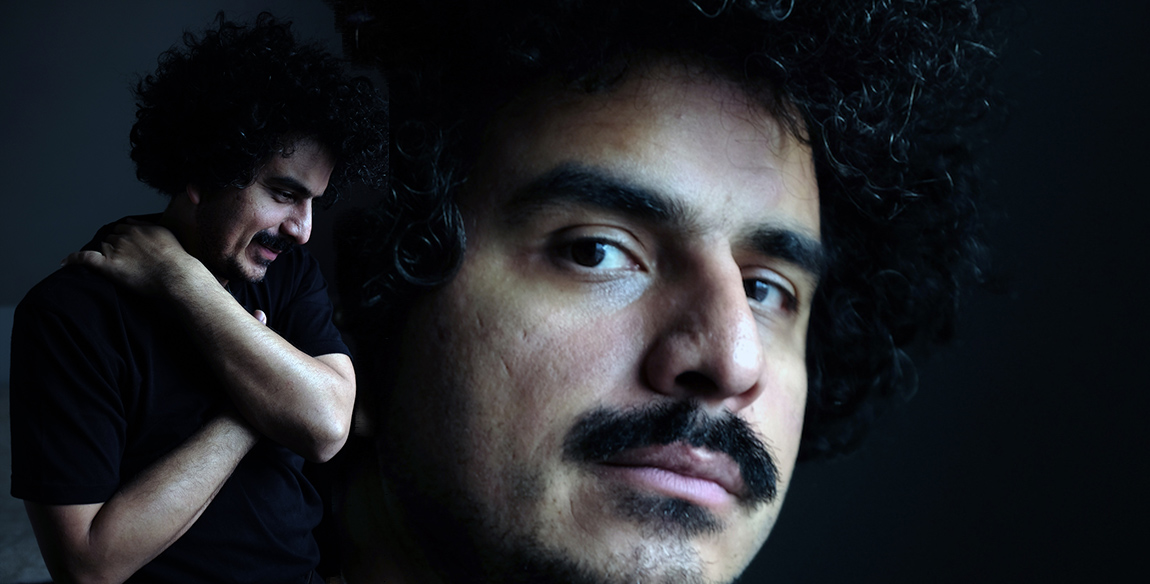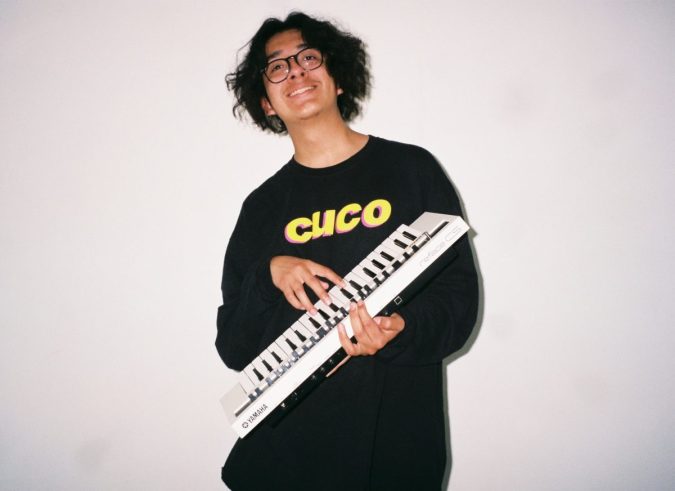Amidst the excitement surrounding last year’s tidal wave of mainstream Latino crossovers, many started wondering if the chasm between music industries segregated by language had finally started to narrow. These so-called “Latin explosions” pop up every few years and are consistently undercut by powerful gatekeepers who market artists based on stereotypes, treating their sound as momentarily bankable fads. However, as labels and tastemakers scramble to cater to rapidly evolving tastes and demographics, spurred by increasingly informed and empowered consumers, more emerging artists are finding opportunities to define their careers on their own terms.
Of course, the catchall label of a “Latin” act feels reductive and increasingly outdated when describing artists like Helado Negro, Cuco, and Lido Pimienta, all of whom possess unique voices that stretch far beyond assumptions of their identities. In an effort to expand on these questions of representation and pigeonholing, Remezcla spoke with these promising young voices ahead of their joint U.S. tour. The discussion ranged from the limiting nature of overcategorization to the long-term impact of our community’s increasing visibility – complex questions with answers that are still unfolding.
How do tours like this help generate visibility and platforms for Latinx artists in less mainstream spaces?
Lido Pimienta: It’s important for me to do this kind of tour because I’m “Latin” and all the hyphens accompanying that term. I live in Canada, so I feel way more isolated than people living in the U.S. I don’t know Cuco personally, but Helado and I have a long history together, so it’s interesting to be joining them because we’re so different from one another that it’s important to showcase Latinx music as something other than a monolith.
All three of you have different artistic and sonic perspectives yet you’re regularly catalogued as “Latin indie” musicians. Do you think this label is still relevant in today’s movement?
Helado Negro: Everything changes all the time so I never try to live up to any kind of label. Most my stuff has never been so mainstream so you could say it’s a weird loop where something happens here or there, but never on one specific end. It’s a spectrum, which is what we’re trying to communicate more than anything. We’re just people making music. We’re representing a place that we’re coming from more than a specific ideal of culture.


Lido: I took a break from music for a few years because I was consistently and incorrectly put in the “nueva cumbia” scene. Something people don’t seem to understand about the Latinx diaspora is that because we’re so mixed, we’re more sensitive and sophisticated about music than we get credit. We grew up with our parents’ music from the 70s and 80s, listening to things ranging from Fania to ABBA. Hearing all that – especially when your parents are migrants – makes you a freak in a very good way. Experimental music or Latin music – I see it all as beautiful and I don’t think one is more important than the other.
“These conversations and where they mean the most to people can mean something different when you push them too hard.”
Cuco, as an industry newcomer, how are you avoiding being pigeonholed as a “Latin” act while your career grows and reaches new audiences?
Cuco: My manager will try and get me on line-ups and she’ll be told, “Yo, but he’s a Latin artist.” But I’m also very experimental. I like jazz, trap, and using 808s and synthesizers and shit. It’s cool that I’m not stuck in a certain scene because the industry tells me so. I go out to different festivals and people don’t see me as just a “Latin act.” I’m still developing a bunch of knowledge, planning my next move. That’s why I feel blessed to have my manager and my bandmates around me, because shit dude, to be real with you, I’m hella lost. This shit is way too fast for me. I went from backyard shows last year to playing Coachella this year.
Helado: And you should know Cuco, I’m so happy this is all happening to you, because it’s really special. I think everyone is in your corner and you should definitely know that. The one expectation is that you do what you do.

Cuco: I only have my perspective of things, but with Doris, my manager – her also coming from immigrant parents and being a woman of color in the industry and knowing that struggle – it just puts things more in perspective. And us teaming up and going around and outside the country and seeing all we’ve built together, it’s the exact opposite of what it’s usually like coming up in the industry.
Why do you think a heartfelt ballad like “Lo Que Siento” sparked so many conversations on immigration, identity, and masculinity?
Cuco: I think it has to do with me being hella interactive with people. That it’s not super fabricated by the industry. I didn’t see it in the deeper perspective of being a Mexican-American artist and breaking stereotypes of machismo. There were two sides of it: people who fucked with it and thought it was cool, and people who didn’t fuck with it because I’m supposed to be a guy and keeping things repressed and shit. So I’m kind of learning, seeing how people react to it, because it opens my eyes to the kinds of people out there and how it changes a stigma.
“It’s important for me not to have to contextualize my music.”
Helado, so much of your creativity is devoted to spreading love and awareness of the conversations within our community, and seeing you and Cuco on this year’s Coachella lineup is a gratifying spotlight on the scene. What do you think are responsible and effective ways for Latinx artists to use these platforms to further stoke conversation?
Helado: Being heavy-handed with these conversations in specific arenas – sometimes it works and sometimes it doesn’t, and you have to pick and choose where it might be most effective. It ends up being a response to the environment. What I mostly want to emphasize with things like Coachella… I’ve done a lot of shows that people are like “I can’t believe you’re doing this. That’s amazing.” But I feel like things that are memorable in my career, in my life, in art, in performance, in music, aren’t those big shows. So these conversations and where they mean the most to people can mean something different when you push them too hard.

Lido, your Polaris Prize win last year has brought your work to the attention of a whole new audience. What do you think can be the long-term impact of this kind of acknowledgement in an industry that favors Anglo art?
Lido: I’m still trying to gauge what the prize actually means. People say, “You’re getting a new audience,” but I mostly perform for white people because I’m based in Canada and get booked across Europe and the [United] States. So my dream is not to play at Coachella. My dream is to play in the Amazon, to go back to Colombia, and do a tour in Argentina, in Chile. It’s important for me not to have to contextualize my music. To be free and not have a political conversation every time I curse on stage. Those are things that I care about because I am a full artist. It doesn’t matter where I play or don’t play. But it’s great and a blessing that people are listening and want to see more from me.
“The truer I am to myself, the more people I inspire.”
2017 was a banner year for mainstream Latino crossovers, but how do you think we can harness and retain this focus on Latino music moving forward?
Cuco: It’s cool to see all these artists becoming more relevant in the bigger industry. I never had a Latin artist to really look up to, it was always just a bunch of white kids making and playing music. It’s cool that people are being motivated to try and do this, not just Latinx artists, but POCs in general. You never think you’re going to get there, but I did it starting in my bedroom.
Helado: I think we need to stop trying to compare people. Stop calling anybody the “somebody of English-speaking music.” If we build on the things that we have, that will generate bigger and better foundations than diminishing the scene as something that just happened as a fad.
Lido: I think the spotlight is going to continue to shine on us because technology is on our side and people our age are finally in positions of power. It’s a very exciting time to be creating and performing music because people in our communities are pushing for representation in entertainment. It’s a great moment to be myself, that I don’t need to dye my hair blond and sing in English. The truer I am to myself, the more people I inspire.
Catch Lido Pimienta, Helado Negro, and Cuco on tour until January 28. To purchase tickets for any of the shows below, click here.




